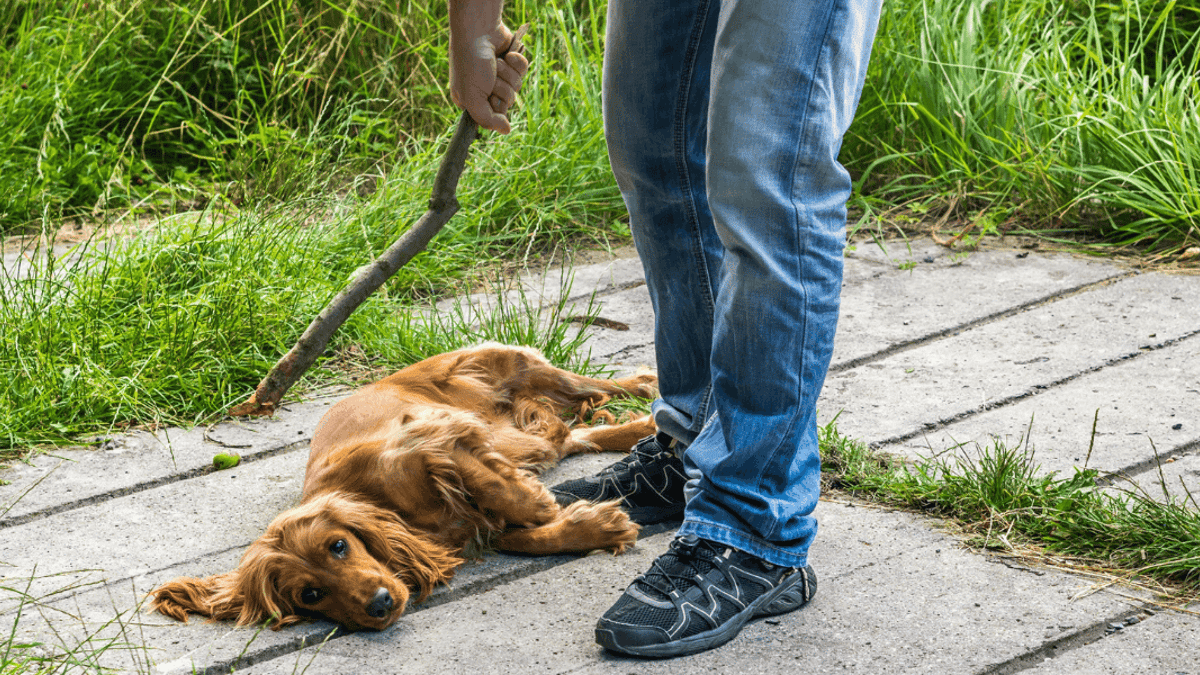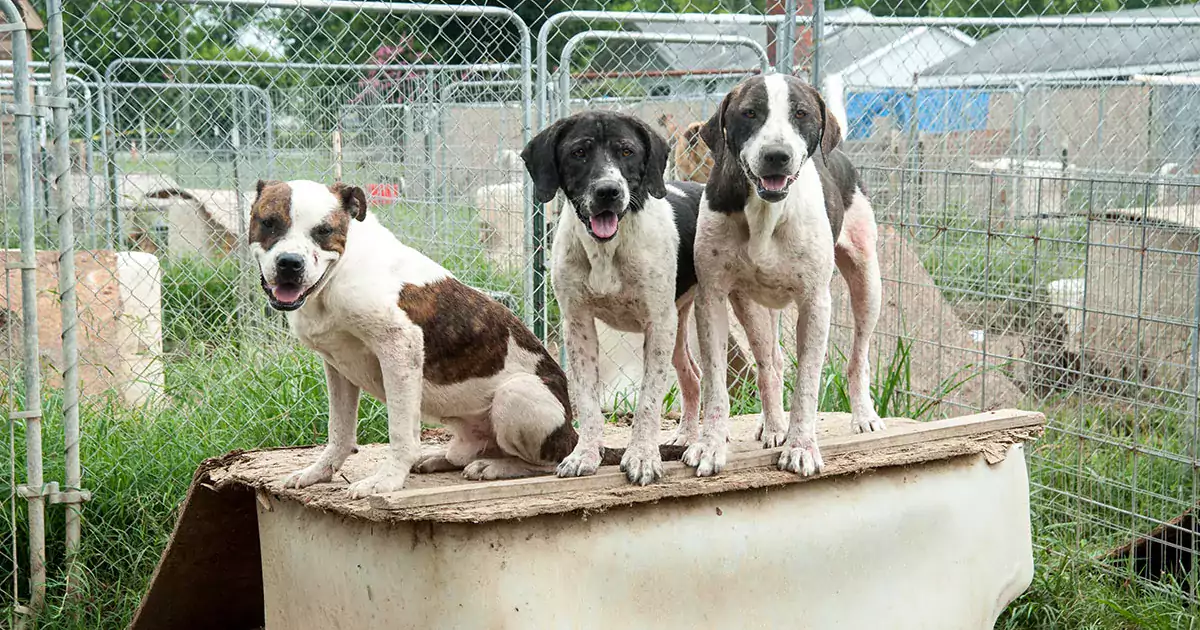Animal cruelty is a heinous crime that affects millions of animals each year. It can take many forms, from neglect to physical abuse and even death. The RSPCA (Royal Society for the Prevention of Cruelty to Animals) is the leading organization in the UK dedicated to preventing animal cruelty and promoting animal welfare. They have a well-defined process for investigating cases of suspected animal cruelty and taking appropriate action. In this article, we will delve into the RSPCA’s investigation procedures, how to identify animal cruelty, and what steps can be taken to report and prevent it.
Animal Cruelty Investigation Procedures

The RSPCA has a structured set of procedures for investigating cases of animal cruelty. These procedures may vary slightly depending on the specific circumstances of the case, but they generally involve the following steps:
Receiving a Complaint
The first step in the investigation process is receiving a complaint. The RSPCA receives complaints of animal cruelty from various sources, including members of the public, animal welfare organizations, and law enforcement agencies. These complaints can be made anonymously or with the complainant’s details, which are kept confidential by the RSPCA.
Upon receiving a complaint, the RSPCA will assess the information provided to determine if it meets the criteria for investigation. Criteria for investigation include evidence of animal suffering, breaches of animal welfare laws, and non-compliance with codes of practice for animal care.
Investigating the Complaint
If the RSPCA determines that the complaint meets the criteria for investigation, an RSPCA inspector will be assigned to the case. RSPCA inspectors are highly trained professionals who have the authority to enter premises and investigate cases of suspected animal cruelty.
Once an inspector is assigned to a case, they will typically visit the premises where the animal is believed to be suffering. During the visit, the inspector will conduct a thorough inspection of the premises and the animal. They may also take photographs or videos as evidence and interview the owner or person responsible for the animal’s care.
The inspector will also assess the animal’s health and welfare and seek veterinary advice if necessary. In severe cases, they may immediately remove the animal from the premises to ensure its safety.
Taking Action
If the inspector finds evidence of animal cruelty, they will take appropriate action. This can include issuing warnings or formal notices to improve the animal’s living conditions or removing the animal from the premises altogether. The RSPCA has the power to prosecute offenders if necessary, which can result in fines, imprisonment, or a ban on owning animals.
The RSPCA also works closely with other agencies to provide support and resources for improving animal welfare. For example, they may offer education and training programs for animal owners or collaborate with social services to address underlying issues that contribute to animal abuse or neglect.
How Do You Identify Animal Cruelty?

Identifying animal cruelty is not always straightforward, and it may be challenging for someone unfamiliar with animal behavior or welfare laws. However, there are some signs that you can look out for:
- Physical Signs: Visible injuries such as cuts, bruises, or weight loss can be an indication of physical abuse or neglect.
- Environmental Conditions: Animals living in overcrowded, unsanitary, or inadequate living conditions are at risk of suffering from neglect.
- Behavioral Changes: An animal that was once friendly and affectionate but suddenly becomes withdrawn or aggressive may be experiencing abuse.
- Lack of Basic Care: Animals who do not have access to food, water, shelter, or veterinary care are at risk of suffering from neglect.
- Inhumane Training Methods: Some behaviors, such as using electric shock collars or other harmful methods to train animals, can be considered animal cruelty.
It is essential to note that not all animals showing these signs are necessarily being mistreated. However, if you have any doubts or concerns, it is best to report it to the RSPCA for further investigation.
What Are the Evidence of Animal Cruelty?
The RSPCA relies on evidence to prove that animal cruelty has taken place. This can include physical evidence, such as photographs, videos, and veterinary reports, and witness statements. In some cases, an animal may be removed from the premises and taken into the RSPCA’s care as evidence.
One crucial piece of evidence in animal cruelty investigations is the Animal Welfare Act 2006. This law sets out the minimum standards of care for animals and outlines offenses related to animal welfare. It also allows the RSPCA to prosecute offenders and bring them to justice.
How Can We Solve Animal Cruelty?

The RSPCA is continually working towards solving animal cruelty through education, awareness, and collaboration. They offer various programs and resources aimed at promoting responsible ownership and improving animal welfare.
One of their main initiatives is the Freedom Food scheme, which provides farm assurance for animal products, ensuring that animals are raised according to high welfare standards. The RSPCA also works with local governments and law enforcement agencies to enforce animal welfare laws and bring abusers to justice.
However, solving animal cruelty also requires the participation of the public. It is vital to report suspected cases of animal cruelty to the RSPCA so that they can investigate and take appropriate action. Additionally, supporting ethical and sustainable practices when purchasing animal products can help reduce instances of animal abuse in the food industry.
How Do I Report Animal Cruelty to the RSPCA?
If you suspect that an animal is being mistreated, you can report it to the RSPCA by calling their 24-hour cruelty hotline at 0300 1234 999. You can also fill out an online form on their website or visit a local RSPCA office.
When reporting animal cruelty, it is crucial to provide as much information as possible, including the location of the animal, the type of abuse you suspect, and any other relevant details. This information will help the RSPCA’s inspectors to investigate promptly and take necessary action.
Animal Cruelty Investigation Procedures PDF
The RSPCA has an extensive guide on their website outlining their animal cruelty investigation procedures in detail. This document is available in PDF form, making it easy for anyone to access and understand the organization’s practices. The guide also includes helpful tips on how to spot and report animal cruelty.
RSPCA Investigation Process
The RSPCA’s investigation process is thorough and well-regulated to ensure that animal cruelty cases are handled efficiently and ethically. They have a team of dedicated inspectors who are highly trained and experienced in handling animal welfare issues.
Their goal is not only to prosecute offenders but also to educate the public on responsible ownership and improve animal welfare standards across the UK.
Animal Cruelty Investigation Procedures Texas
The RSPCA operates primarily in the UK, but there are similar organizations worldwide dedicated to preventing animal cruelty. In the state of Texas, USA, animal cruelty investigations fall under the jurisdiction of the Society for the Prevention of Cruelty to Animals (SPCA). The SPCA follows a similar process to the RSPCA, where reports of suspected animal cruelty are investigated by trained professionals, and appropriate action is taken if necessary.
When Can the RSPCA Remove Animals?
In cases of severe animal cruelty, the RSPCA has the authority to remove animals from their owners’ care immediately. This can be done to prevent further harm to the animal and gather evidence for prosecution. However, in most cases, the RSPCA will work with the owner to improve the animal’s living conditions and provide support for better care.
Animal Cruelty Investigator Salary
Animal cruelty investigators, also known as animal welfare inspectors, are paid employees of the RSPCA, and their salary is determined by the organization’s pay scale. The starting salary for an animal cruelty investigator in the UK is around £20,000 per year, with potential for higher earnings with experience and seniority.
Animal Cruelty Investigator Texas
In Texas, animal cruelty investigators are typically employed by or work closely with the SPCA. Salaries may vary depending on the organization, but the average annual salary for an animal cruelty investigator in Texas is around $33,000.
How Long Do RSPCA Investigations Take?
The duration of an RSPCA investigation varies depending on the complexity of the case and the cooperation of the parties involved. Some investigations may take a few days, while others can take weeks or even months to gather enough evidence for prosecution. However, the RSPCA aims to resolve cases promptly to ensure the safety and well-being of the animals involved.
RSPCA Animal Cruelty Number
The RSPCA has a 24-hour cruelty hotline that can be reached at 0300 1234 999. This number can be used to report suspected cases of animal cruelty, seek advice, or make donations to support their cause.
Conclusion
Animal cruelty is a heinous crime that affects millions of animals each year. The RSPCA plays a vital role in investigating and preventing animal cruelty through their well-defined procedures and collaborations with other agencies. As responsible citizens, it is our duty to report any suspected cases of animal cruelty to the RSPCA and support ethical practices to reduce instances of abuse. Together, we can create a safer and more compassionate world for animals.
wfriv.xyz